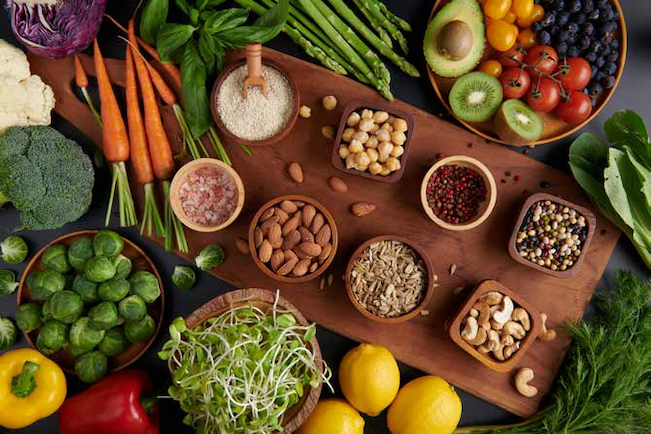Gaining weight sounds easy. All you have to do is eat more, right? But many athletes would agree that eating more can sometimes feel like a chore rather than a pleasure or necessity. Pushing hard in the gym burns a lot of energy, and constantly trying to eat extra meals or snacks can feel overwhelming and repetitive.
Gaining muscle and bulking up is not about eating more; it’s about following proper nutrition, giving your muscles enough time to recover and taking weight gainers when needed.
Supplements
Sometimes, even with an optimised diet and careful meal planning, you still may struggle to hit your elevated macro targets. In this instance, quality weight gainers can help. They’re a convenient option to fuel muscle growth without struggling to eat more or stressing over meals.
The most common ingredients in mass gainers are proteins, calorie-dense carbs and healthy fats. Carbohydrates usually form the majority of calories with common sources including fast-digesting carbs like maltodextrin or dextrose, as well as complex carbs such as oats, sweet potatoes, or brown rice powder. These complex carbohydrates provide longer energy and fibre.
Protein is another major nutrient that forms the basis of mass gainer supplements. It helps in the repair and building of muscle after workouts. Common sources include whey protein concentrate or isolate, which digest quickly and are ideal for post-workout recovery, and casein, a slower-digesting protein that supplies amino acids over several hours.
Some formulas also include egg or milk proteins, while plant-based options like pea, rice, or soy protein cater to vegan athletes. These proteins work together to ensure your body has a steady supply of nutrients to support muscle repair and growth, making them a key component of any effective mass-gaining supplement.
Healthy fats are another important component in weight gainers. They supply additional calories and support hormone production. Many formulas include MCTs (medium-chain triglycerides) or oils from coconut, sunflower, or flax seeds to boost caloric density without adding bulk. Finally, weight gain supplements may also include micronutrients and performance-enhancing additives.
Vitamins and minerals support overall health and recovery, while ingredients like creatine, glutamine, or BCAAs can enhance muscle growth and workout performance. Some products also use thickening agents to improve texture and mixability. Before buying a weight gainer, you want to check how many calories there are in a single serving. Choose a supplement that aligns with your daily calorie goals.
Also, look for high-quality protein sources like whey, casein, or plant-based protein, and pick a flavour you enjoy. No matter the supplement you choose, remember that it can be used to fill the gaps. Lasting progress always comes from a well-balanced diet built on whole foods.
Proper Nutrition

Once you’ve considered supplements, it’s time to bring the focus back to nutrition. As an athlete, you probably already know what and when to eat. Key nutrients like protein support muscle growth, while regular snacking helps keep your calorie intake on track. However, building muscle requires a strategic approach to nutrition.
Instead of merely increasing portion sizes or eating frequently, you want to focus on calorie-dense foods. Include healthy fats like coconut, avocado, or olive oil along with seeds like sunflower, flax, or chia into your meals. For instance, adding a tablespoon of olive oil can provide approximately 120 calories. Similarly, sliced avocado adds about 161 calories to your meal. Smoothies and shakes can also be boosted with oats and peanut butter.
Proper Hydration
Water is another key factor in mass gain. That’s because hydration promotes the elasticity of muscle tissue, which can reduce the risk of injury and improve recovery after training. It also plays a crucial role in transporting nutrients and eliminating waste. When you don’t drink enough water, your muscles tire and contract more quickly, which can limit performance and slow down your mass gain progress.
When it comes to hydration, a good rule of thumb is to aim for around 30–35 ml of water per kilogram of body weight each day, with an extra 500–700 ml per hour of training to replace what you lose through sweat. Instead of chugging large amounts at once, sip steadily throughout the day and keep an eye on urine colour, pale yellow is a simple sign you’re on track.
Recovery
Proper nutrition and hydration help build muscle, but so does resting. Training, like most things in life, is all about finding the right balance. When you train hard, your muscles get tiny tears. Rest days give your body time to repair those tears and allow your muscles to grow back stronger.
The number of rest days you need in a week while trying to build mass depends on many factors. In general, you need to take 2-3 rest days per week to allow for proper recovery or more if you are new to exercise.
























